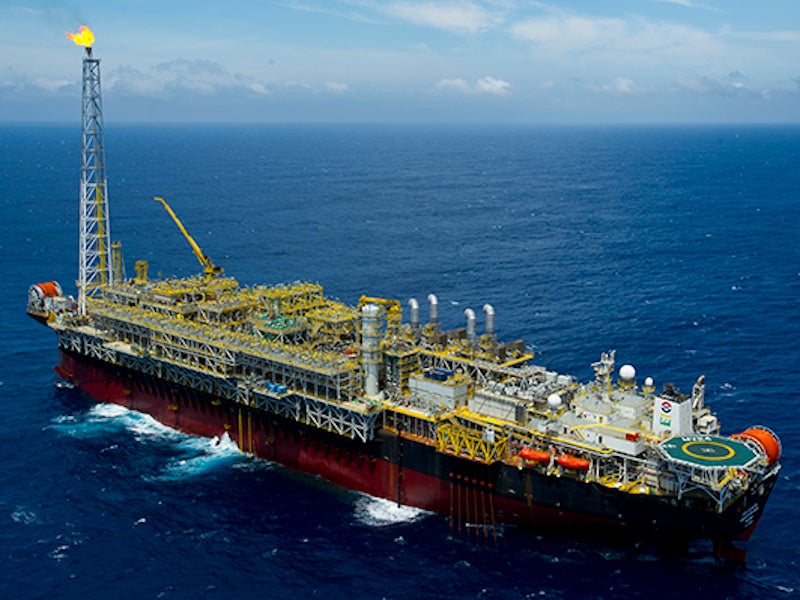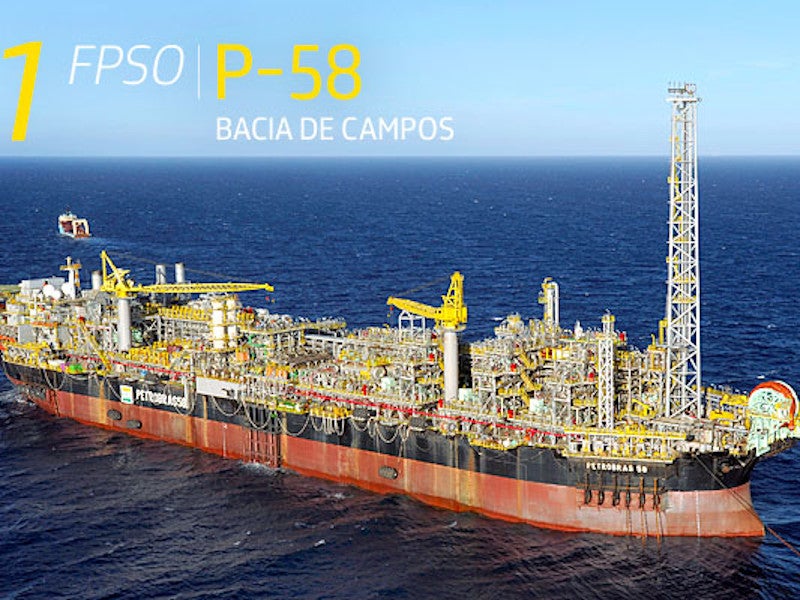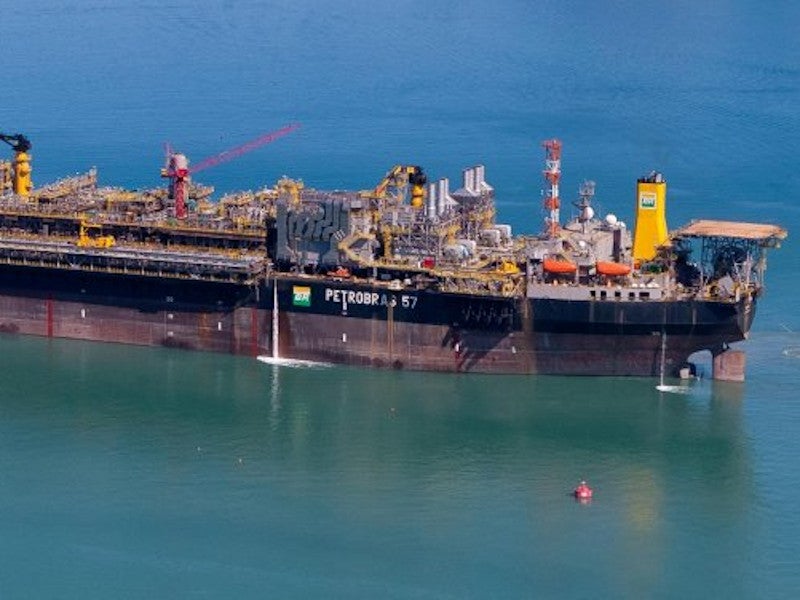Parque das Baleias, also known as the Whale Park, is a cluster of seven deep-water oil and gas fields in the northern Campos Basin, offshore Espírito Santo, Brazil.
Owned and operated by state-controlled Petrobras, the Parque das Baleias area includes the Jubarte, Baleia Azul, Baleia Franca, Baleia Anã, Cachalote, Caxaréu and the Pirambú fields that have both pre-salt and post-salt reserves. The area is estimated to hold more than two billion barrels of oil equivalent (boe) recoverable reserves.
The current aggregate production from the Parque das Baleias cluster is estimated to be 222,000 barrels of oil and six million cubic metres (mcm) of gas per day. The offshore field complex with a total of four floating, production, storage and offloading (FPSO) units, reached the cumulative production of one billion barrel of oil equivalent (boe) in May 2020.
The Agencia Nacional do Petroleo (ANP) and Petrobras signed a unification agreement to create the New Jubarte field comprising the Baleia Azul, Baleia Franca, and the Jubarte fields as well as portions of the Cachalote, Caxaréu, Mangangá, and Pirambu fields in April 2020. ANP also decided to extend the production phase of the New Jubarte Field by an additional 27 years until 2056, as part of the agreement.
Petrobras is in the plan to install the fifth FPSO vessel in the Parque das Baleias area as part of the New Jubarte field development. It invited tenders for the same in 2019.
Location and discoveries
The oil and gas fields within the Parque das Baleias offshore complex are located in block BC-60 in the northern part of the Campos Basin in water depths ranging from 1,260m to 1,426m.
Jubarte was the first major field to be discovered in Parque das Baleias area in 2001 followed by the discovery of the Cachalote field in November 2002.
The Baleia Azul, Pirambú and the Caxaréu fields were discovered in 2006 while the Baleia Franca field was discovered in 2008.
The Parque das Baleias development details
The initial pilot phase production from both pre and post-salt reservoirs at Parque das Baleias was started in 2006, while the commercial-scale production was started with the commissioning of the Jubarte and the Cachalote fields in 2010.
The Parque das Baleias complex is currently being operated with four FPSOs connected to a total of 44 producing wells and 21 injector wells.
The aggregate production rate of the fields within the complex was 222,000 barrels of oil and six million cubic metres (mcm) of gas a day in the first quarter of 2020. Approximately 71% of the total output was from the pre-salt reservoirs.
The FPSOs at Parque das Baleias
The four FPSOs operating the Parque das Baleias complex are named as Cidade de Anchieta, Capixaba, P-57, and P-58.
Capixaba, operating in the Cachalote field, was the first FPSO to commence production in May 2010, while the FPSO P-57 on the Jubarte field commenced operation in December 2010.
The FPSO Cidade de Anchieta connected with the Baleia Azul, Jubarte, and the Pirambu fields commenced production in September 2012. The FPSO is capable of processing 100,000 barrels of oil and 3.5mcm of gas per day.
The FPSO P-58 is connected to the Baleia Franca, Cachalote, Jubarte, Baleia Azul, and Baleia Anã fields and receives oil from 19 satellite wells. The FPSO commenced operation in March 2014.
New Jubarte field development
The integrated system of the New Jubarte field will involve a new FPSO capable of processing 100,000 barrels of oil and 5mcm of gas a day.
The fifth FPSO in the Parque das Baleias area is planned to be connected with a total of 19 wells, including seven new production wells and four new injector wells in the Jubarte field.
The project also involves the relocation and the tieback with the new FPSO of two producing wells and four injectors from the FPSO P-58, as well as two producing wells from the FPSO Capixaba.
The New Jubarte field integrated system is estimated to require a total of 280km of flexible lines and umbilical ducts.
Contractors involved
SBM Offshore supplied the Cidade de Anchieta, Capixaba, and P-57 FPSOs under three separate agreements signed in 2008 and 2009.
ABB performed the electrification works for the Cidade de Anchieta FPSO while WEG supplied the electrical package for the FPSO P-57.
Keppel Offshore and Marine performed the refurbishment work on the Cidade de Anchieta and P-57 FPSOs. Keppel was also engaged in the conversion of the P-58 FPSO.
GE was contracted for the supply of gas turbine and compressor equipment the FPSO P-58 in July 2010, while Aker Solutions was contracted for the supply of mooring and loading systems for the FPSO P-58 in November 2010.
FMC Technologies was awarded a contract worth £26m ($40m) for the supply of three subsea boosting stations for the FPSO P-58 in July 2013, while Oceaneering International was contracted for the supply of thermoplastic production control umbilicals for a total length of 135km in April 2012.





